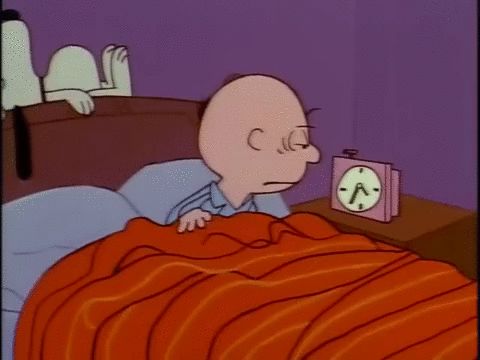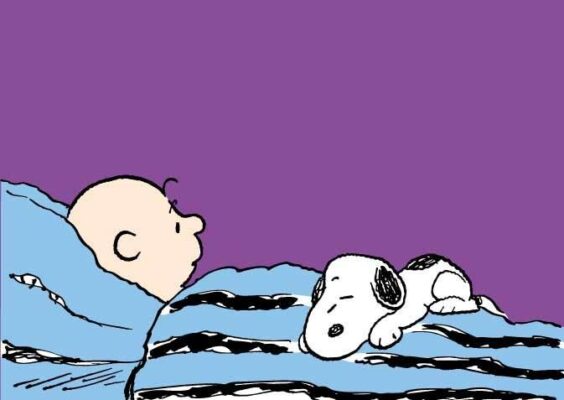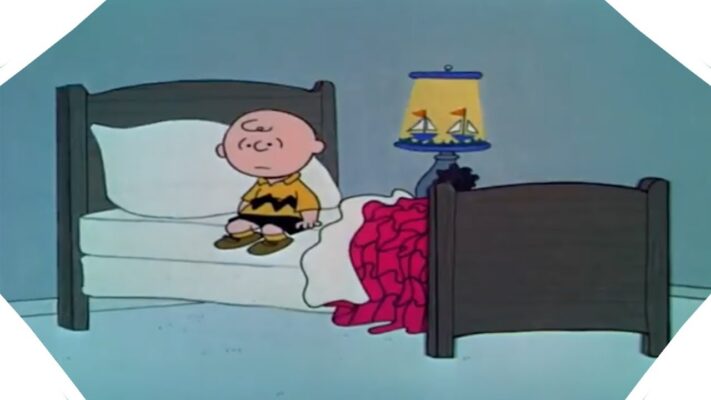Movie News
Is Charlie Brown Depressed?
Charlie Brown, the central figure in Charles M. Schulz’s legendary comic strip Peanuts, is one of the most recognizable and relatable characters in popular culture. From his perpetual bad luck to his persistent attempts to do better in life, Charlie Brown is loved by many for his endearing optimism. However, beneath his lovable exterior, there are recurring themes of sadness, frustration, and self-doubt, which raise the question: is Charlie Brown depressed?
Is Charlie Brown Depressed? Who is Charlie Brown?
Charlie Brown was first introduced to the world on October 2, 1950, in the Peanuts comic strip created by Charles M. Schulz. Over the years, he became a central figure, known for his round head, zigzag-patterned shirt, and unwavering desire to succeed despite constant setbacks.

While Charlie Brown often seems to be at the mercy of bad luck and poor outcomes, his resilience is one of the defining features of his character. Whether it’s attempting to kick a football that Lucy inevitably pulls away at the last second, flying a kite that always gets caught in a tree, or facing rejection from his peers, Charlie Brown keeps trying, which is part of what makes him such a beloved character.
The Signs of Depression in Charlie Brown
Though Schulz intended for Charlie Brown to reflect the struggles of the everyday person, the frequency with which Charlie Brown experiences disappointment and frustration can sometimes be seen as more than just bad luck. Let’s break down the symptoms and behaviors associated with depression and see how they compare to Charlie Brown’s emotional journey throughout Peanuts.

- Persistent Sadness and Hopelessness
A hallmark of depression is a lingering sense of sadness, sometimes paired with a sense of hopelessness about the future. Charlie Brown often conveys this feeling through his signature phrase, “Good grief!” He regularly expresses dismay over his inability to succeed at tasks that are important to him, whether it’s winning a baseball game or even just having a good day. His pervasive sadness can be seen in how he reacts to both major disappointments and minor inconveniences alike. - Low Self-Esteem and Self-Doubt
One of the most prominent characteristics of Charlie Brown is his low self-esteem. He often refers to himself as a “blockhead” and frequently questions his worth and abilities. For instance, in school settings, he tends to worry excessively about how others view him and often believes that no one likes him. This feeling of inadequacy is common in individuals who suffer from depression and can exacerbate feelings of loneliness. - Feelings of Loneliness and Social Isolation
Despite being surrounded by friends, Charlie Brown often feels lonely and left out. His interactions with characters like Lucy, who constantly ridicules him, or the Little Red-Haired Girl, whom he admires from afar but never quite manages to speak to, reflect his internal struggle to connect with others. His feelings of social isolation are deepened by his sense that he’s always on the outside looking in, further fueling his melancholic worldview. - Lack of Motivation and Interest in Activities
In Peanuts, Charlie Brown’s lack of success in almost every endeavor, especially in sports like baseball, seems to wear down his enthusiasm over time. While he continues to try, his lack of motivation is often evident when he sighs in resignation before engaging in activities he knows will likely end in failure. This decreased sense of joy and interest in life’s pursuits is another sign of depression, as people who struggle with the condition often lose enthusiasm for things they once loved. - Overwhelming Feelings of Failure
No matter how hard Charlie Brown tries, he often finds himself failing at both small and big tasks. This sense of failure is particularly visible in his attempts to lead his baseball team to victory, which almost always end in defeat. The constant repetition of these failures leads Charlie Brown to doubt his ability to ever be successful, reinforcing his feelings of being inadequate.
Psychological Interpretation of Charlie Brown
From a psychological standpoint, Charlie Brown’s behaviors and emotional struggles have been analyzed by experts as potentially indicative of depression. Let’s take a closer look at how different psychological theories might explain Charlie Brown’s condition.
- Cognitive Behavioral Theory
Cognitive Behavioral Therapy (CBT) often focuses on how negative thought patterns can lead to depressive symptoms. In Charlie Brown’s case, his frequent self-deprecating thoughts (e.g., “I can’t do anything right”) could be seen as negative thought patterns that perpetuate his feelings of sadness. CBT would suggest that his lack of success, combined with his perception of himself as a failure, creates a cycle where he is constantly reinforcing negative beliefs about his abilities. - Learned Helplessness
Another theory that might explain Charlie Brown’s depression is learned helplessness, a concept developed by psychologist Martin Seligman. This theory suggests that after experiencing repeated failures or challenges that are out of one’s control, individuals begin to believe they have no power over their situation. This could explain why Charlie Brown continues to engage in activities that he knows will likely end in failure, such as attempting to kick the football, even though he has learned over time that it will never be successful. - Social-Emotional Development
Another psychological lens we can use to understand Charlie Brown is social-emotional development, which focuses on how individuals relate to others and develop self-awareness. Charlie Brown’s constant social struggles and his inability to connect meaningfully with peers like Lucy and the Little Red-Haired Girl suggest that he may have difficulties in this area. His low self-esteem and fear of rejection hinder his ability to form strong social connections, which further feeds into his feelings of isolation.
Why Do We Relate to Charlie Brown?
Despite Charlie Brown’s apparent struggle with depression, many people continue to relate to him and find comfort in his character. Why is this the case?
- Relatability of Everyday Struggles
One of the reasons Charlie Brown is so beloved is that his struggles are incredibly relatable. Whether it’s feeling like you’re not good enough, being rejected by others, or failing to achieve your goals, Charlie Brown’s challenges mirror the everyday hardships that many people face. His resilience in the face of these difficulties, even when he doubts himself, gives viewers a sense of hope. - His Emotional Honesty
Unlike many characters in fiction who hide their sadness, Charlie Brown is emotionally honest. He doesn’t pretend to be happy when he’s not. This raw depiction of emotion, especially in a comic strip aimed at both children and adults, is part of what makes Peanuts so unique. People see themselves in Charlie Brown because he’s not afraid to admit when he’s struggling. - A Symbol of Resilience
Though Charlie Brown often feels defeated, he never gives up. He continues to try, even when he knows things likely won’t go his way. This resilience, despite his many failures, makes him a symbol of hope for those who face adversity. Even though he may be battling feelings of depression, he continues to push forward, offering a message of perseverance.
Is Charlie Brown Depressed?
So, is Charlie Brown depressed? While Charlie Brown exhibits many of the characteristics associated with depression, such as low self-esteem, persistent sadness, and social isolation, it’s important to remember that Peanuts is a comic strip designed to reflect the everyday struggles of ordinary people. Charlie Brown represents the idea that life is full of challenges, disappointments, and sometimes overwhelming sadness, but through it all, we keep going.
Whether or not Charlie Brown is clinically depressed may be up for debate, but what’s clear is that his character resonates with millions of people who have experienced similar emotions. Charlie Brown’s enduring popularity is a testament to the power of empathy, resilience, and the shared human experience.
If you’re a fan of Charlie Brown and the Peanuts gang, check out our exclusive collection of Peanuts merchandise at Alibaytoon Store. Celebrate your love for this timeless comic strip with T-shirts and memorabilia that honor the legacy of Charlie Brown and his friends!

